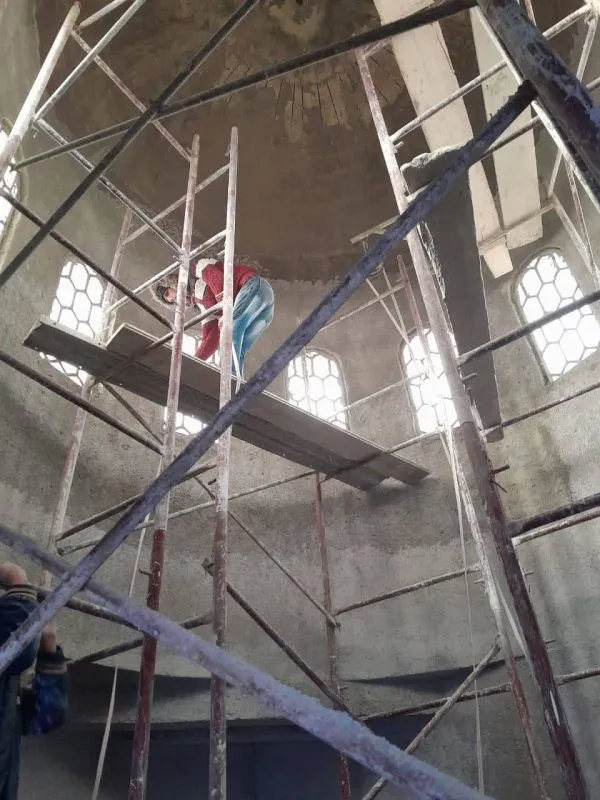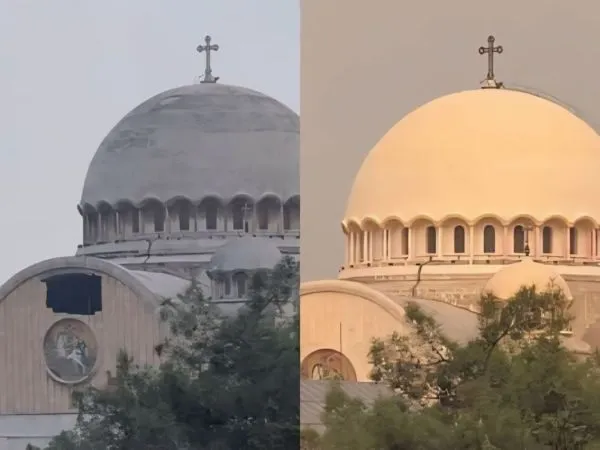http://www.myspiritfm.com/News?blogid=Catholic-News&view=post&articleid=275339&link=1&fldKeywords=&fldAuthor=&fldTopic=0
 People join together during a "Rally to Stop the Six-Week Abortion Ban" held at Lake Eola Park on April 13, 2024, in Orlando, Florida. / Credit: Joe Raedle/Getty Images
People join together during a "Rally to Stop the Six-Week Abortion Ban" held at Lake Eola Park on April 13, 2024, in Orlando, Florida. / Credit: Joe Raedle/Getty Images
Washington, D.C. Newsroom, Apr 23, 2024 / 06:00 am (CNA).
The Florida Supreme Court recently made national headlines when it issued two significant abortion rulings on the same day.
One ruling cleared the way for a law to take effect that protects unborn life at six weeks and beyond. The other allowed a far-reaching abortion proposal, titled the Limiting Government Interference with Abortion Amendment, to be placed on the November ballot.
If passed, the amendment would change the Florida Constitution to include a provision reading: "No law shall prohibit, penalize, delay, or restrict abortion before viability or when necessary to protect the patient's health, as determined by the patient's health care provider."
With the abortion amendment now officially on the ballot in Florida, many will be looking to the state this November to see if it will break a long string of pro-life referendum defeats or simply mark another abortion victory.
Although several other states are expected to have similar abortion amendments on their ballots, Florida holds special importance both because it is the third-most populous state in the country and because of its perceived role as a leader among conservative states.
"It's critically important that we win Florida," Kelsey Pritchard, director of state public affairs for Susan B. Anthony Pro-Life America, told CNA.
"If we win Florida," she explained, "I think it can really turn the tide on these ballot measure fights."
Is abortion a winning issue for Democrats?
So far, the pro-life movement has suffered one crushing defeat after another when it comes to abortion referendums. Every abortion-related amendment that has come to a general vote since the overturn of Roe v. Wade has resulted in an abortion victory.
The votes have not been close either. Despite a major pro-life push to defeat it, an amendment adding abortion to the Ohio Constitution passed in a 56% to 44% vote last October. Another pro-abortion measure in Michigan passed 56% to 43% in November 2022. In Kansas, which is considered a reliably Republican and conservative state, voters declined 59% to 41% to add an amendment that would have protected unborn life from abortion.
Several leading Republicans, including former president Donald Trump and Florida Sen. Rick Scott, have since embraced less protective pro-life positions.
Despite floating the idea of supporting a national abortion ban earlier in his campaign, Trump announced on April 8 that he would not support any federal abortion policy and that the issue is "up to the states."
For his part, Scott said that he would support replacing Florida's six-week law with a more permissive 15-week abortion limit.
President Joe Biden, meanwhile, criticized the Florida six-week law as "extreme" and has signaled his belief that support for abortion will propel him to victory in the 2024 general election.
"Trump is scrambling," Biden said. "He's worried that since he's the one responsible for overturning Roe, the voters will hold him accountable in 2024. Well, I have news for Donald: They will."
Biden is set to make a campaign stop in Tampa on Tuesday, where he is expected to speak on abortion and the six-week pro-life law.
Can Florida buck the trend?
With all this at play, John White, a professor of politics at the Catholic University of America in Washington, D.C., told CNA that from a purely political perspective, "there is very little that can be done to defeat the initiative."
"The six-week abortion ban in Florida is very likely to be overturned by the ballot initiative," he said. "In every state in which a ballot initiative has appeared, the pro-life forces have lost. I don't think Florida will be any different."
"We have already seen the national significance of this issue and its ability to galvanize majorities of voters. Florida will only add to this," he added.
Yet, Seana Sugrue, a politics professor at Ave Maria University in southwest Florida, said that this abortion showdown is "different from the other states both procedurally and substantively."
She pointed out that while the abortion amendments in Ohio and Michigan only required a simple majority to pass, the Florida amendment must clear a 60% threshold to be added to the state's constitution. This will make a major difference, she said, predicting that the pro-abortion camp will find it very difficult to rally that much support in the state.
According to an Emerson College poll published April 11, 57% of Florida voters believe the six-week pro-life law is too strict. According to the Pew Research Center, 56% of Florida adults believe abortion should be legal in all or most cases.
Sugrue said the Florida amendment is "much more radical" than the other abortion proposals such as the one in Ohio and is "actually very, very broad."
The amendment bans restrictions on abortion before viability, but late-term abortions would still be allowed if determined necessary by a health provider. According to Sugrue's analysis of the amendment, it would allow abortion until birth in Florida because it doesn't define what it means by necessary for one's health and does not specify what type of health care providers are allowed to make that determination.
What the pro-life movement needs to win in Florida
Sugrue said the pro-life movement needs to prioritize communicating the truth about the radical nature of the amendment to the public.
"Messaging is going to be very important," she said, adding that the "constant, faithful, and clear support" from the Catholic Church in Florida will be needed.
So far, the Florida Conference of Catholic Bishops (FCCB) and Gov. Ron DeSantis, a Catholic, have both criticized the amendment.
In a statement shared with CNA on April 1, Michael Sheedy, FCCB executive director, said that the Florida bishops "will work hard to oppose this cruel and dangerous amendment and urge all Floridians to vote no."
DeSantis, meanwhile, has called the amendment "very, very extreme" and said that voters will reject it once they figure out how radical it is.
According to Pritchard, there is already a coalition of pro-life groups formed to defeat the amendment. She said that "what's going to be key to our success is the willingness of Gov. DeSantis to get in this fight."
"We would hope that he would be vocal, continue to be vocal early and often, because that awareness of what this measure actually does is very important starting now rather than waiting until the last couple of weeks before the election," she said.
But just as important as being vocally supportive, according to Pritchard, is for the governor to help with fundraising. In Ohio, the campaign in favor of the abortion amendment outraised the pro-life campaign by a large margin.
"We know the other side is going to easily pour millions upon millions into this, from George Soros to the abortion lobby and abortion industry," Pritchard said. "So, the dollars will be as crucial as him [DeSantis] being willing to be a vocal advocate."
With the help of the governor, Pritchard believes the pro-life movement can break its losing slump.
"Florida is the state where the red wave materialized in 2022. We were all hoping and expecting and praying for a red wave throughout the entire nation in those midterms, but that didn't happen, except for in Florida, where Ron DeSantis won by double digits and took both houses of the Legislature," she said. "We have reasons to be hopeful in that respect. At the same time, we have a lot of work to do."
Full Article
 Pope Francis speaks to the United Nations General Assembly in New York City, Sept. 25, 2015. / L'Osservatore Romano.
Pope Francis speaks to the United Nations General Assembly in New York City, Sept. 25, 2015. / L'Osservatore Romano.














